Related Research Articles
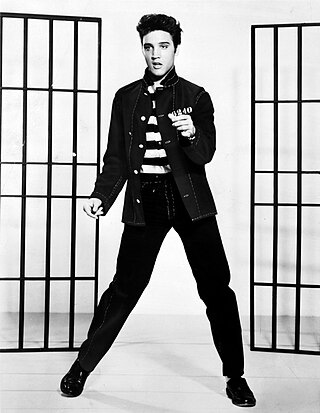
Elvis Aaron Presley, known mononymously as Elvis, was an American singer and actor. Known as the "King of Rock and Roll", he is regarded as one of the most significant cultural figures of the 20th century. Presley's energized performances and interpretations of songs, and sexually provocative performance style, combined with a singularly potent mix of influences across color lines during a transformative era in race relations, brought both great success and initial controversy.

George Washington was a Founding Father and the first president of the United States, serving from 1789 to 1797. As commander of the Continental Army, Washington led Patriot forces to victory in the American Revolutionary War against the British Empire. He is commonly known as the Father of His Country for his role in bringing about American independence.
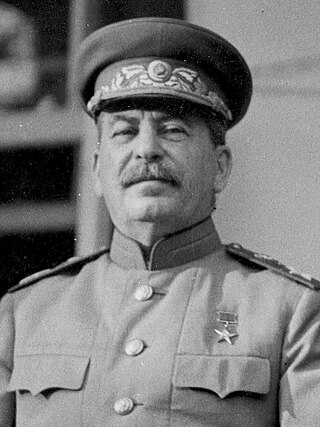
Joseph Vissarionovich Stalin was a Soviet politician, revolutionary, and political theorist who led the Soviet Union from 1924 until his death in 1953. He held power as General Secretary of the Communist Party from 1922 to 1934, as Secretary of the Central Committee of the Communist Party of the Soviet Union from 1934 until his death and as Chairman of the Council of Ministers from 1941 until his death. He initially governed as part of a collective leadership, but consolidated power to become a dictator by the 1930s. Stalin codified his interpretation of Marxism as Marxism–Leninism, while the totalitarian political system he established is known as Stalinism.

Muhammad was an Arab religious and political leader and the founder of Islam. According to Islam, he was a prophet who was divinely inspired to preach and confirm the monotheistic teachings of Adam, Noah, Abraham, Moses, Jesus, and other prophets. He is believed to be the Seal of the Prophets in Islam, and along with the Quran, his teachings and normative examples form the basis for Islamic religious belief.

Nazi Germany, officially known as the German Reich and later the Greater German Reich, refers to the German state between 1933 and 1945, when Adolf Hitler and the Nazi Party controlled the country, transforming it into a totalitarian dictatorship. The Third Reich, meaning "Third Realm" or "Third Empire", referred to the Nazi claim that Nazi Germany was the successor to the earlier Holy Roman Empire (800/962–1806) and German Empire (1871–1918). The Third Reich, which the Nazis referred to as the Thousand-Year Reich, ended in May 1945, after only 12 years, when the Allies defeated Germany and entered the capital, Berlin, ending World War II in Europe.
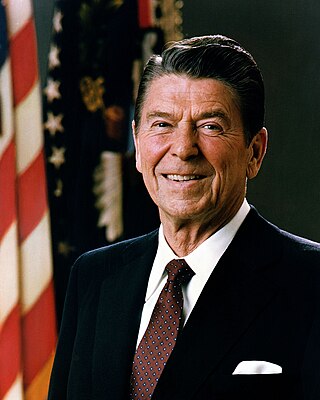
Ronald Wilson Reagan was an American politician and actor who served as the 40th president of the United States from 1981 to 1989. He was a member of the Republican Party and became an important figure in the American conservative movement. His presidency is known as the Reagan era.
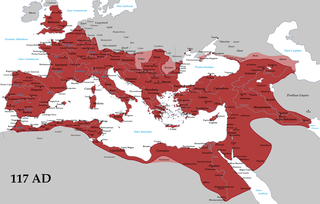
The Roman Empire ruled the Mediterranean and much of Europe, Western Asia and North Africa. The Romans conquered most of this during the Republic, and it was ruled by emperors following Octavian's assumption of effective sole rule in 27 BC. The western empire collapsed in 476 AD, but the eastern empire lasted until the fall of Constantinople in 1453.

The Beatles were an English rock band formed in Liverpool in 1960. The core lineup of the band comprised John Lennon, Paul McCartney, George Harrison and Ringo Starr. They are widely regarded as the most influential band in Western popular music and were integral to the development of 1960s counterculture and the recognition of popular music as an art form. Rooted in skiffle, beat and 1950s rock 'n' roll, their sound incorporated elements of classical music and traditional pop in innovative ways. The band also explored music styles ranging from folk and Indian music to psychedelia and hard rock. As pioneers in recording, songwriting and artistic presentation, the Beatles revolutionised many aspects of the music industry and were often publicised as leaders of the era's youth and sociocultural movements.

William Shakespeare was an English playwright, poet and actor. He is widely regarded as the greatest writer in the English language and the world's pre-eminent dramatist. He is often called England's national poet and the "Bard of Avon". His extant works, including collaborations, consist of some 39 plays, 154 sonnets, three long narrative poems and a few other verses, some of uncertain authorship. His plays have been translated into every major living language and are performed more often than those of any other playwright. Shakespeare remains arguably the most influential writer in the English language, and his works continue to be studied and reinterpreted.
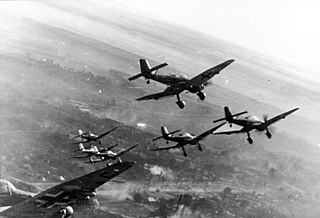
World War II or the Second World War was a global conflict between two coalitions: the Allies and the Axis powers. Nearly all the world's countries participated, with many investing all available civilian resources in pursuit of total war. Tanks and aircraft played major roles, enabling the strategic bombing of cities and delivery of the only nuclear weapons ever used in war. World War II was the deadliest conflict in history, resulting in 70 to 85 million deaths, more than half of which were civilians. Millions died in genocides, including the Holocaust, and by massacres, starvation, and disease. After the Allied victory, Germany, Austria, Japan, and Korea were occupied, and German and Japanese leaders were tried for war crimes.

Sir Winston Leonard Spencer Churchill was a British statesman, military officer, and writer who was Prime Minister of the United Kingdom from 1940 to 1945 and again from 1951 to 1955. Apart from 1922 to 1924, he was a member of Parliament (MP) from 1900 to 1964 and represented a total of five constituencies. Ideologically an adherent to economic liberalism and imperialism, he was for most of his career a member of the Conservative Party, which he led from 1940 to 1955. He was a member of the Liberal Party from 1904 to 1924.

Year 840 (DCCCXL) was a leap year starting on Thursday in the Julian calendar, the 840th year of the Common Era (CE) and Anno Domini (AD) designations, the 840th year of the 1st millennium, the 40th year of the 9th century, and the 1st year of the 840s decade.

Laurence Kerr Olivier, Baron Olivier was an English actor and director. He and his contemporaries Ralph Richardson and John Gielgud made up a trio of male actors who dominated the British stage of the mid-20th century. He also worked in films throughout his career, playing more than fifty cinema roles. Late in his career he had considerable success in television roles.

Victoria was Queen of the United Kingdom of Great Britain and Ireland from 20 June 1837 until her death in 1901. Her reign of 63 years and 216 days—which was longer than those of any of her predecessors—constituted the Victorian era. It was a period of industrial, political, scientific, and military change within the United Kingdom, and was marked by a great expansion of the British Empire. In 1876, the British parliament voted to grant her the additional title of Empress of India.
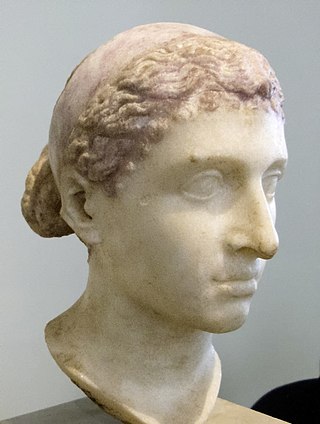
Cleopatra VII Thea Philopator was Queen of the Ptolemaic Kingdom of Egypt from 51 to 30 BC, and the last active Hellenistic pharaoh. A member of the Ptolemaic dynasty, she was a descendant of its founder Ptolemy I Soter, a Macedonian Greek general and companion of Alexander the Great. Her first language was Koine Greek, and she is the only Ptolemaic ruler known to have learned the Egyptian language, among several others. After her death, Egypt became a province of the Roman Empire, marking the end of the Hellenistic period in the Mediterranean begun during the reign of Alexander.

Napoleon Bonaparte, later known by his regnal name Napoleon I, was a French general and statesman who rose to prominence during the French Revolution and led a series of military campaigns across Europe during the French Revolutionary and Napoleonic Wars from 1796 to 1815. He led the French Republic as First Consul from 1799 to 1804, then ruled the French Empire as Emperor of the French from 1804 to 1814, and briefly again in 1815.

Adolf Hitler was an Austrian-born German politician who was the dictator of Nazi Germany from 1933 until his suicide in 1945. He rose to power as the leader of the Nazi Party, becoming the chancellor in 1933 and then taking the title of Führer und Reichskanzler in 1934. His invasion of Poland on 1 September 1939 marked the start of the Second World War. He was closely involved in military operations throughout the war and was central to the perpetration of the Holocaust: the genocide of about six million Jews and millions of other victims.
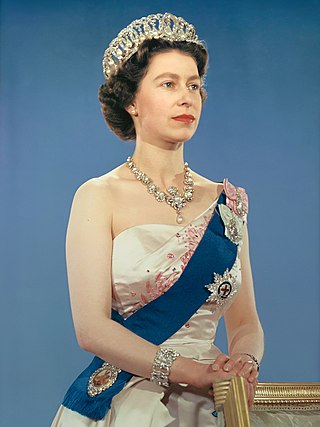
Elizabeth II was Queen of the United Kingdom and other Commonwealth realms from 6 February 1952 until her death in 2022. She had been queen regnant of 32 sovereign states during her lifetime and was the monarch of 15 realms at her death. Her reign of 70 years and 214 days is the longest of any British monarch, the second-longest of any sovereign state, and the longest of any queen regnant in history.
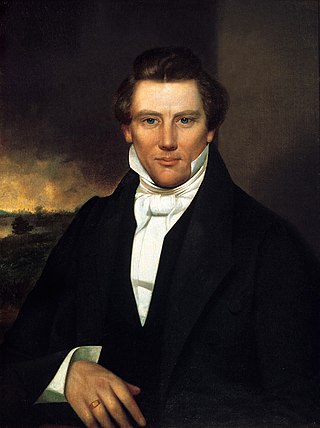
Joseph Smith Jr. was an American religious leader and the founder of Mormonism and the Latter Day Saint movement. Publishing the Book of Mormon at the age of 24, Smith attracted tens of thousands of followers by the time of his death fourteen years later. The religion he founded is followed by millions of global adherents and several churches, the largest of which is the Church of Jesus Christ of Latter-day Saints.
References
- ↑ Böttiger, Karl Wilhelm (1830). Geschichte des Kurstaates und Königreiches Sachsen. F. Perthes. p. 21.
- 1 2 Nelson, Janet Laughland (1991). The Annals of St-Bertin. Manchester University Press. p. 48. ISBN 9780719034268.